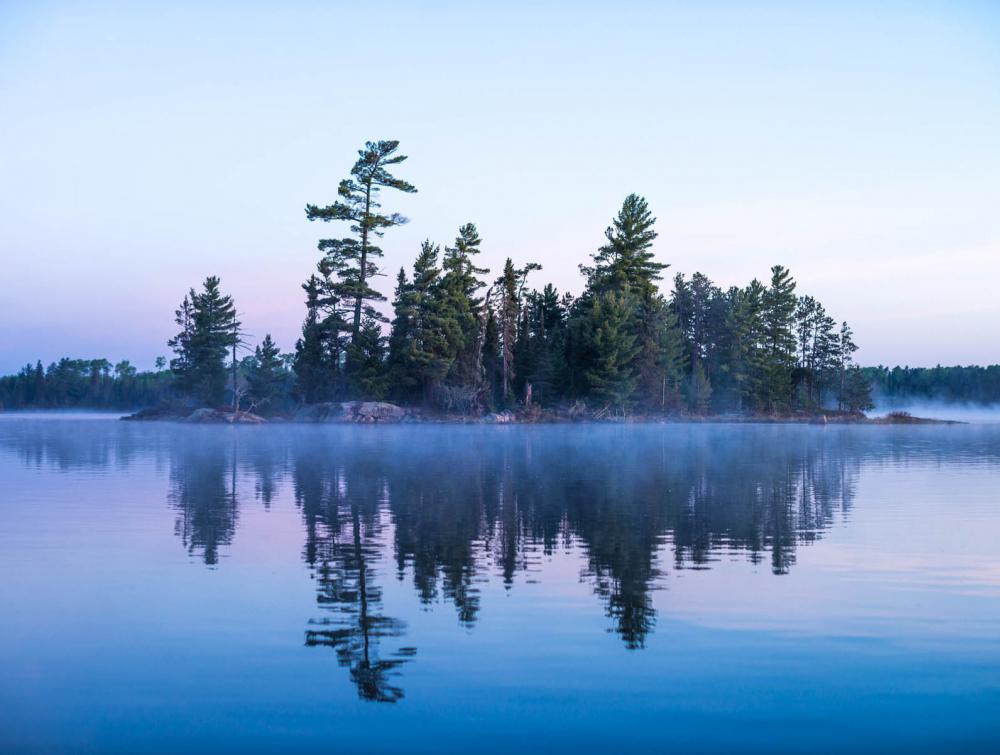Chilean firm pushes toxic mining near Minnesota’s Boundary Waters Wilderness

Boundary Waters Canoe Area Wilderness, Minnesota.
Erik Fremstad.
WASHINGTON, Dec. 17, 2019 ----- Twin Metals, owned by the Chilean conglomerate Antofagasta, expects to submit before year end a detailed plan to develop a sulfide-ore copper and nickel mine in the headwaters of the Boundary Waters Canoe Area, a pristine canoeing mecca and the nation’s most-visited wilderness.
Due to the serious threat of toxic waste that would pollute the vast interconnected waters of the Boundary Waters, The Wilderness Society and other groups have sued to prevent this mining project from going forward.
By submitting this mine plan of operations to the Trump Administration and the State of Minnesota, Twin Metals will apply for authorizations needed to build a mine based on leases that have been illegally renewed by the Trump Administration.
Statement by Alison Flint, Wilderness Society Director of Litigation and Agency Policy
“Since day one the Trump administration has pushed to fast-track this dangerous sulfur-ore copper mine which scientific analysis has flagged as extremely dangerous to this pristine wilderness. In the process, the administration has ignored science, the law, public opinion and the expertise of the civil servants who manage the sensitive resources at stake, all at the behest of a mining conglomerate with ties to Ivanka Trump.
“The law requires and local communities deserve a thorough, transparent and science-based environmental review that seriously considers whether such a mine should be built at all. Yet, the impacts of this mine have never been subject to review and public input required by the National Environmental Policy Act. Moreover, the Forest Service, the agency charged with managing the Boundary Waters with statutory rights to approve or deny mining in the Superior National Forest, must play a lead role.”
Background
Conservation groups have strongly objected to the Trump administration’s efforts to breathe new life into two expired hardrock mining leases near the Boundary Waters Canoe Area Wilderness in Minnesota that would pollute America’s most popular wilderness area.
The Trump Administration has moved aggressively to make public lands in the watershed of the Boundary Waters available for industrial mining activity, including unlawfully reinstating expired mineral leases and later renewing those same leases based on a deeply flawed environmental analysis and public process. This runs counter to earlier findings from the Forest Service that renewing the leases in this sensitive watershed poses too great a risk.
Last year, U.S. Department of Agriculture Secretary Sonny Perdue canceled a proposed 20-year ban on mining activity in the watershed of the Boundary Waters, America’s most popular Wilderness Area. The nearly completed environmental review documents for the cancelled study have never been released to the public, despite numerous requests from conservation groups and members of Congress.
The Boundary Waters offers 1,200 miles of canoe routes and 18 hiking trails. The area also includes more than 1,000 lakes left by receding glaciers and hundreds of miles of streams. The pollution resulting from sulfide-ore copper mining would inevitably harm the water quality and ecology of these protected public lands and waterways. The local economy – which is sustained by tourism and jobs connected to this fishing, canoeing, and camping mecca – would also suffer. In a 2018 letter to the Forest Supervisor at Superior National Forest, Harvard Economist James H. Stock predicted economic harm to the region if this mining were introduced in the Superior National Forest.
A recent Minneapolis Star Tribune editorial, Not this Mine. Not this Location, noted that “a 2010 report by a Chilean nonprofit states that an Antofagasta-owned mine has ‘the biggest amount of toxic spills into the waters in the Region of Coquimbo,’ with the most ‘devastating’ incident involving a 2009 spill of copper concentrate into the Choapa River.”
Last year, the Interior Department reinstated the two expired mineral leases, which date back to 1966. The Wilderness Society, Center for Biological Diversity, and the Izaak Walton League of America, represented by Earthjustice, filed a lawsuit in federal district court in Washington, D.C. challenging that decision. Oral argument on the case is scheduled for December 20, 2019.
The Wilderness Society, founded in 1935, is the leading conservation organization working to protect wilderness and inspire Americans to care for our wild places. With more than one million members and supporters, The Wilderness Society has led the effort to permanently protect 111 million acres of wilderness and to ensure sound management of our shared national lands. www.wilderness.org.
CONTACTS:
Alison Flint, Director of Litigation and Agency Policy, The Wilderness Society, 303-802-1404, alison_flint@tws.org
Michael Reinemer, Deputy Director Strategic Communications, The Wilderness Society, 202-429-3949, Michael_reinemer@tws.org
